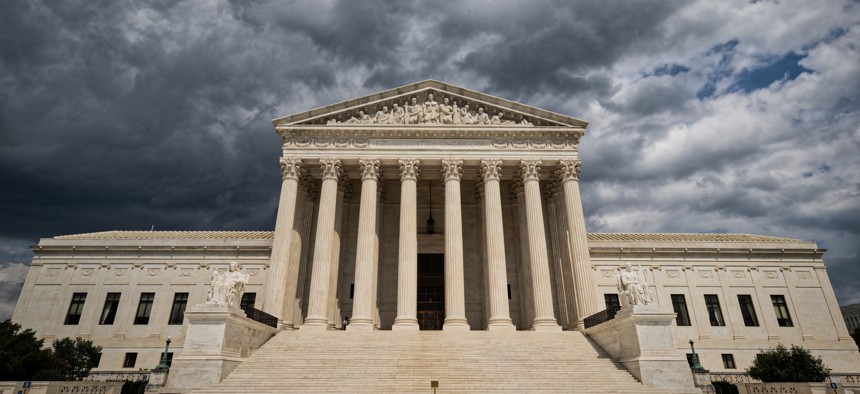Supreme Court to take up two state laws on social media

Bill Chizek/GettyImages
The high court will hear challenges to Florida and Texas laws that seek to control how social media platforms “censor” disfavored political views.
This story is republished from the Florida Phoenix. Read the original article.
A 2021 Florida law that sought to control the ability of social media platforms to “censor” disfavored political views and a similar measure from Texas are headed to the U.S. Supreme Court.
The high court announced last week that it would hear appeals from conflicting intermediate appellate courts blocking enforcement of the Florida law but approving the Texas law. However, the U.S. Supreme Court has blocked enforcement for now.
The U.S. Supreme Court justices said the case would test whether social media platforms’ content-moderation rules violate the First Amendment. Essentially:
“Whether the First Amendment prohibits a state from requiring that social-media companies host third-party communications, and from regulating the time, place, and manner in which they do so.” “Whether the First Amendment prohibits a state from requiring social-media companies to notify and provide an explanation to their users when they censor the user’s speech.”
Gov. Ron DeSantis pushed for the “Big Tech” law after social media platforms including Facebook, YouTube, and Twitter (now called “X”) defenestrated former President Donald Trump in light of his role in the Jan. 6, 2021, attack on the U.S. Capitol.
In signing the bill into law on May 24, 2021, DeSantis compared the platforms to dictators. (SB 7072)
“Maybe this isn’t as much the bearded tyrant in the military fatigues — you know, maybe the person is in pajamas on their laptop drinking a soy latte in Silicon Valley,” DeSantis said. “You know what, when they have the power to silence you, you take it seriously.”
The Florida law would allow users to seek as much as $25,000 for every day a site kicked them off, deleted a post, or used its algorithms to limit exposure to their posts. It provides penalties of up to $250,000 for deplatforming candidates seeking statewide office and $25,000 for other office seekers, per day.
And it would allow social media users to opt out of a platform’s algorithms and insist they feed them posts in order of the time they were written and require detailed explanations to every user whose content they quashed.
NetChoice and the Computer and Communications Industry Association, two industry groups, sued to block enforcement of both laws.
Split Rulings
The U.S. Court of Appeals for the Eleventh Circuit upheld a trial judge’s findings that the Florida law violated the First Amendment.
“We hold that it is substantially likely that social-media companies—even the biggest ones—are private actors whose rights the First Amendment protects, that their so-called ‘content-moderation’ decisions constitute protected exercises of editorial judgment, and that the provisions of the new Florida law that restrict large platforms’ ability to engage in content moderation unconstitutionally burden that prerogative,” Judge Kevin Newsom wrote in an opinion published on May 23, 2022.
However, the U.S. Court of Appeals for the Fifth Circuit overruled a trial judge’s preliminary injunction against enforcement of the Texas law, arguing that the platforms would allow “email providers, mobile phone companies, and banks” to “cancel the accounts of anyone who sends an email, makes a phone call, or spends money in support of a disfavored political party, candidate, or business,” as Judge Andrew Oldham wrote.
U.S. Solicitor General Elizabeth Prelogar had urged the court to hear the cases to resolve the circuit split.
But she advised against considering requirements in both laws that platforms disclose their operations policies, including standards for removing content and users, on ground that both lower courts agreed such disclosure was constitutional, “and adding more questions would further complicate what would already be unusually complicated merits briefing and argument.”
Florida Phoenix is part of States Newsroom, a network of news bureaus supported by grants and a coalition of donors as a 501c(3) public charity. Florida Phoenix maintains editorial independence. Contact Editor Diane Rado for questions: info@floridaphoenix.com. Follow Florida Phoenix on Facebook and Twitter.





